- Dec 11, 2019
- 3,445
- 4,948
- AFL Club
- Carlton
- Other Teams
- RZ Surf School & Chewton Tigers
Follow along with the video below to see how to install our site as a web app on your home screen.
Note: This feature may not be available in some browsers.

Thanks Pammy.καλό Πάσχα. 3KZ is Football (google does have it's uses!)
How do you have your coffee is the most important question of all Kimba 3KZ is Football ?I am certainly not a medical scientist, but I do find the above story reassuring. It also confirms my strong cultural and personal biases in relation to coffee. Given that caffeine appears to have fueled every school I have ever worked in, it also plays a huge part in the education of our young people.

Did you accessorise or go for the interesting layers/silhouette?
All black is back – again. Here’s how to wear it in 2024
Think about the silhouette – black makes a caped sleeve or wide-legged trouser feel more wearablewww.theguardian.com
GREAT NEWS - BLACK IS THE NEW BLACK! I wore all black today to celebrate.
I went to see The Moffs at the Tote in 1985 and I recall their lead singer getting testy because the crowd were fairly reserved. Eventually he said something like, “Oh yeah, Melbourne. Wear black take smack” which was the standard cliche.
Firstly, this was a very funny post. You made me laugh.Did you accessorise or go for the interesting layers/silhouette?
I hasten to add I did accessorise with a black laptop bag, black whiteboard markers, black whiteboard cleaner and black humour.Did you accessorise or go for the interesting layers/silhouette?
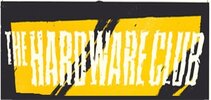

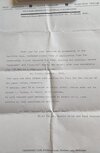
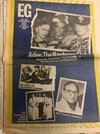
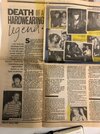

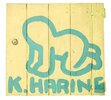
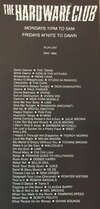

Proff Goth for the day.Firstly, this was a very funny post. You made me laugh.
Layers? Hmmm? Does black cotton roll neck under a black fine woollen cardigan count as layering? I’m not good at this.
I think it was in Queensbury St yes, I know I went there at least once but too long ago.I used to go to the Users Club a bit. Was that in Queensbury St? I can’t remember. I enjoyed Hosies and used to go to Chasers because it was down the road. I think Wednesday night at Chasers was ‘Alternative’ night. Always too much smoke machine action at Chasers. I think they also had a ‘Hard and Fast’ night there. Only went to Inflation once and The Chevron once.
Same old, same old.Well, shït. What a freaking surprise.

Jobs at Bunnings: How Australia’s musicians, actors and artists scratch a living
Half of Australia’s working artists are earning as little as $200 from their craft as the sector falls deeper into crisis.www.theage.com.au
Pammy, we are at the tipping point for performance spaces here. Minimal pubs that allow live music in the city, one theatre in the city that isn't operated by the Festival Centre, and that one needs drastic remedial work.Same old, same old.
The only thing that is different as far as I can see is that the Arts administrators have been losing a few jobs too.
That and the fact the demographic that went out when they were in their 20-30's no longer does.
Therefore venues are closing but that is Australia wide.
